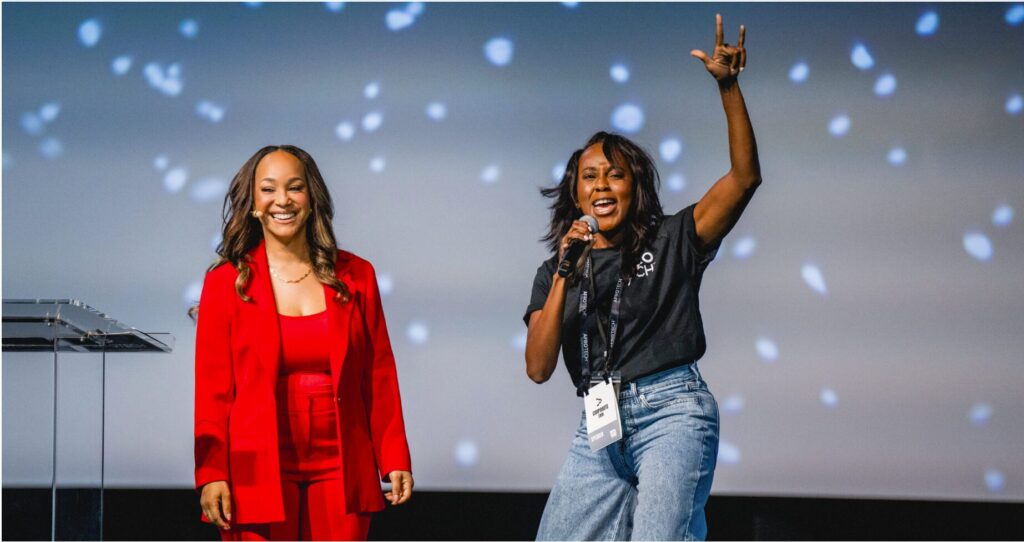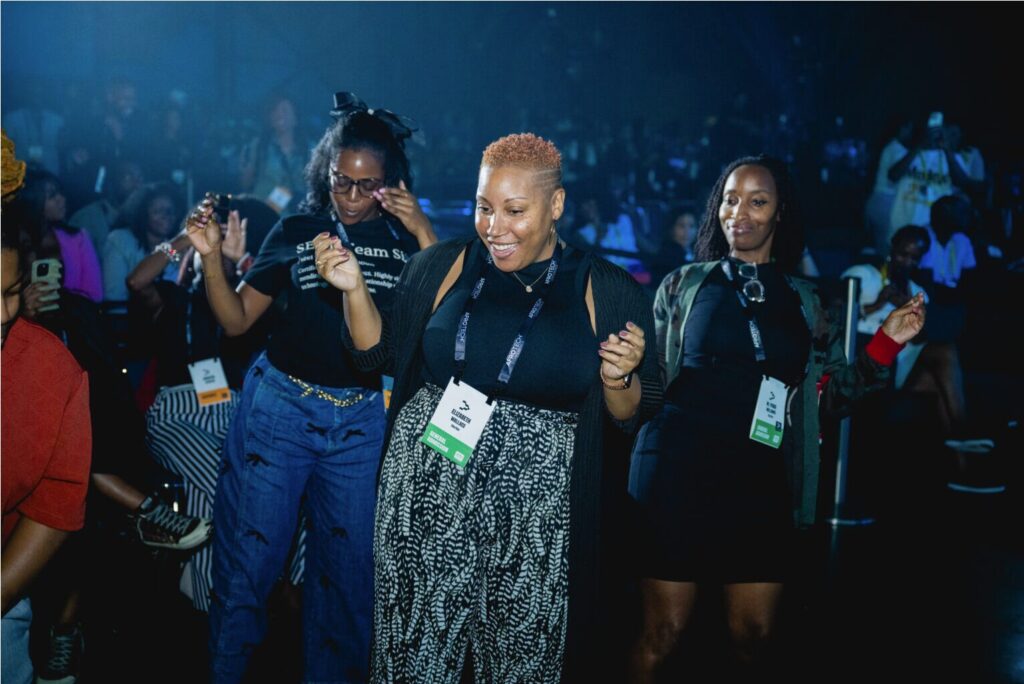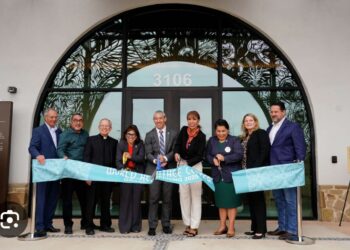
AfroTech, one of the biggest international tech conferences for Black professionals, entrepreneurs, and innovators, made its first visit to Houston in the fall of 2024 with the theme “Designing The Future.”
In 2016, the AfroTech conference started in San Francisco as a networking event for 600 Black tech professionals who were concerned about the continued underrepresentation in the industry. The pitch was straightforward, and the event has grown over time to become a magnet for a variety of intrepid thinkers, many of whom also understand the value of the collective.
Together with co-founders Jeff Nelson and Morgan DeBaun, Blavity Inc., a digital media and technology firm based in Los Angeles, became the force that drives AfroTech. Since the first conference, the organization has worked to foster diversity, cultivate innovation, and bridge the gap between culture and technology. In the tech sector, where Black professionals are notably underrepresented, it also seeks to motivate upcoming Black leaders. According to the U.S. Equal Employment Opportunity Commission, whereas Black employees make up over 12 percent of the U.S. workforce overall, they only make up 7.4 percent of the high-tech workforce and 5.7 percent of high-tech managers.
Attendance at AfroTech has increased dramatically throughout the years, rising from over 650 in its inaugural year to over 25,000 in 2022. According to conference promoters, last year’s event in Austin attracted over 30,000 attendees and brought in $42.8 million in total commercial revenues, of which $8 million went directly to the local community. With its historic premiere in Houston this year, AfroTech solidified its reputation as the “Homecoming for the Black professional,” attracting over 37,000 participants for a thrilling five-day celebration of creativity, aspiration, and community.
Conference organizers ultimately acknowledged that this year was the ideal time to bring AfroTech to Houston, pointing to the city’s growing significance in international areas including health, energy, and aerospace. Historically, the conference has been held in big cities with significant IT industries.
“The city’s strategic importance in these industries, combined with its diverse community, makes it the ideal place for AfroTech to further its mission of supporting Black professionals in tech,” said a representative, “With a focus on sectors like energy tech, health tech, and aerospace tech, Houston is attracting startups, investment, and talent. The city’s expanding infrastructure and dynamic entrepreneurial ecosystem are contributing to its increasing recognition as a key player in the tech industry.”
In addition to participating in a range of engaging seminars on data engineering, artificial intelligence, and cybersecurity, attendees heard from peers and industry experts during panels. AfroTech’s primary focus is technology, but it also attracts people from the consumer goods, entertainment, energy, health care, and aerospace sectors—all of which have robust populations in Texas, particularly Houston.

AfroTech’s goal of empowering and inspiring people was embodied in the opening ceremony. Morgan DeBaun, Co-Founder and CEO of Blavity, and Derrick Johnson, President and CEO of the NAACP, were two of the most powerful speakers of the day at the ceremony, which was hosted by Will Lucas and Ashley Blaine Featherson-Jenkins.
The Power of Our Now: Taking Ownership in AI and Our Rights was the title of Johnson’s engaging keynote address. Johnson’s speech addressed the pressing need for Black leadership to establish inclusive and moral tech policies, especially as AI continues to permeate every aspect of contemporary society.
With a stirring set of keynote speeches and panel discussions on Wednesday, AfroTech furthered its objective. The Black Eyed Peas’ Will.i.am gave an impassioned keynote address about the significance of creating egalitarian digital ecosystems. He urged inclusive policies to guarantee that no one is left behind in the quickly changing tech sector and emphasized the need for innovation that puts the particular needs of historically marginalized communities first. Colin Kaepernick, a former NFL quarterback and activist, gave a powerful speech about leadership and activism to end the day. Kaepernick’s call to action as the founder and CEO of Lumi was unambiguous: “Leverage your influence and platforms to drive meaningful societal change.”
With a number of powerful workshops that demonstrated the depth of creativity and talent throughout the Black community, day three raised the standard even further. A fireside conversation with Bun B, the renowned hip-hop artist who is also an entrepreneur and a co-owner of Trill Burgers, was one of the day’s most anticipated events. Bun B offered frank advice on using influence outside of music, stressing the value of leaving enduring legacies in the entertainment sector as well as outside.
AfroTech highlighted how important it is for the Black community to not only have access to the tech sector but also to be meaningfully included in it, especially as artificial intelligence continues to influence businesses. A number of panels examined the revolutionary possibilities of artificial intelligence (AI) and other cutting-edge technologies, offering practical advice on how to use them to advance society. Many collaborative discussions were had about the urgency behind the lack of Black professional representation in the AI community and how it can be weaponized as a vessel of discrimination from equal employment to social justice.
This past November weekend’s events were made more relatable and enjoyable by fan-favorite creators including Complex presenter Speedy Morman, food influencer Keith Lee, and comic Lisa Beasley, well known on TikTok as #CorporateErin. They also demonstrated how technology can impact everyone, from big producers to regular people.
The goal of the weekend was to create a community that feeds on group empowerment, not simply tech. The goal of the panels and conversations was to provide participants the skills they needed to help others in their networks as well as achieve professionally.
AfroTech is a multifaceted attraction today. Over the course of four to five days, it features about three dozen panels and a recruiting fair, but it’s also—if not more so—a networking event. Like homecoming, it attracts engineers, big-time investors, coders, business entrepreneurs, and anybody else looking for a sense of community.
Houston was AfroTech’s social roadmap between twerking and networking. From the boardroom to the bar, whether you’re looking for a job, a man, an investor or just a good grown-up time, AfroTech provided just that, which may be attributed to it politely being nicknamed “Freaknik for nerds”. AfroTech Houston attracted its largest attendance and participation to date, which is why it’s no surprise that it is due to return to Houston in 2025, on Halloween weekend.
“Nobody is coming to save us, but standing in this room and looking at each and every one of your faces I know with absolute certainty that we don’t need saving,” said Morgan DeBaun, Blavity co-founder and CEO, “We are the architects, the innovators, the disruptors, the builders of tomorrow, and the future is not something that’s happening to us. It’s something that we certainly can create.”
The AfroTech conference is set to return to Houston this year in 2025, the week of October 27th-31st.






